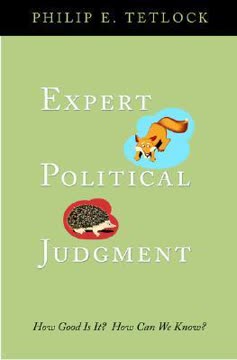Key Takeaways
1. Expert Political Judgment Is Often Overconfident and Barely Beats Simple Benchmarks
Even the most astute observers will fail to outperform random prediction generators—the functional equivalent of dart-throwing chimps—in affixing realistic likelihoods to possible futures.
Overconfidence is pervasive. Experts in political and economic forecasting consistently believe they know more about the future than they do. Their subjective probability estimates for outcomes they deem most likely significantly exceed the actual frequency with which those outcomes materialize. For instance, events experts rated as 100% certain occurred only about 80% of the time.
Barely beating chance. When pitted against simple performance benchmarks, experts' forecasting accuracy is humbling. They only marginally outperform random chance (dart-throwing chimps) and simple extrapolation algorithms that mechanically predict the continuation of past trends. They are significantly outperformed by sophisticated statistical models.
Diminishing returns. Beyond a minimal level of general knowledge (like that of an attentive reader of a quality newspaper), increasing expertise or professional status confers little additional advantage in forecasting accuracy. Specialists are often no better than well-informed generalists when predicting outcomes outside their narrow domain, suggesting that predictive skill reaches a plateau quickly.
2. How Experts Think Matters More Than What They Think
What experts think matters far less than how they think.
Content vs. Style. The content of an expert's beliefs – whether they are liberal or conservative, realist or institutionalist, optimist or pessimist – is a poor predictor of their forecasting accuracy. Experts from across the ideological and theoretical spectrums are equally likely to be right or wrong.
Cognitive style is key. However, the way experts think about the world is a significant predictor of their judgmental performance. Differences in cognitive style, particularly along a dimension related to how people handle complexity and conflicting information, strongly correlate with forecasting skill. This suggests that the mental approach to processing information is more crucial than the specific information held or the conclusions drawn.
Beyond background. Traditional markers of expertise, such as educational attainment (Ph.D. vs. Master's), years of experience, professional background (academic, government, journalist), or access to classified information, show little to no correlation with forecasting accuracy. This reinforces the idea that inherent cognitive traits or learned thinking processes are more important than credentials or access.
3. Foxes Consistently Outperform Hedgehogs in Forecasting Accuracy
If we want realistic odds on what will happen next, coupled to a willingness to admit mistakes, we are better off turning to experts who embody the intellectual traits of Isaiah Berlin’s prototypical fox... than we are turning to Berlin’s hedgehogs.
The Hedgehog and the Fox. Drawing on Isaiah Berlin's metaphor, experts can be broadly categorized: Hedgehogs "know one big thing" and try to fit everything into a single, coherent framework. Foxes "know many little things" and draw from an eclectic array of traditions, embracing complexity and contradiction.
Foxes are better forecasters. Across numerous forecasting exercises spanning diverse regions and topics, foxes consistently demonstrate better calibration (their stated probabilities align better with actual frequencies) and discrimination (they assign higher probabilities to events that occur than to those that don't) than hedgehogs. This advantage is particularly pronounced for long-term forecasts within experts' domains.
Why Foxes Win. Foxes' self-critical, dialectical thinking style prevents them from developing excessive confidence in their predictions. They are more sensitive to contradictory forces and the inherent uncertainty of the future, leading them to make more cautious, yet better calibrated, probability estimates. They rarely rule out possibilities entirely, hedging their bets in a way that hedgehogs, seeking definitive closure, often fail to do.
4. Experts, Especially Hedgehogs, Resist Changing Their Minds When Wrong
When the facts change, I change my mind. What do you do, sir?
Not Natural Bayesians. Despite the logical imperative to update beliefs in proportion to the diagnostic value of new evidence (as prescribed by Bayes's theorem), experts are often reluctant to change their minds, particularly when faced with disconfirming information. They tend to cling to their prior views more tenaciously than is warranted by the evidence.
Hedgehogs are worse Bayesians. This resistance to updating is significantly more pronounced among hedgehogs than foxes. When their forecasts are disconfirmed, hedgehogs are less likely to adjust their confidence in their underlying theories or perspectives compared to foxes, who show a greater willingness to revise their views in the direction indicated by the evidence.
Asymmetrical Updating. Experts are more eager to be good Bayesians when events confirm their predictions, readily boosting confidence in their views. However, when events disconfirm their predictions, they are much slower to decrease their confidence, demonstrating an asymmetrical approach to belief updating that favors maintaining existing beliefs.
5. Belief System Defenses and Hindsight Bias Protect Views from Disconfirmation
Bad luck proved a vastly more popular explanation for forecasting failure than good luck proved for forecasting success.
Rationalizing Errors. When predictions fail, experts employ a variety of "belief system defenses" to protect their core views and minimize the perceived magnitude of their mistakes. These defenses include arguing that:
- The conditions for their theory were not met (exogenous shock).
- The predicted outcome almost happened (close-call counterfactual).
- The predicted outcome is merely delayed (off-on-timing).
- The task was impossible anyway (politics is cloudlike).
- They made the "right mistake" given the risks.
Selective Defense Activation. These defenses are activated selectively and self-servingly. Experts are far more likely to invoke these arguments when their own predictions fail than when the predictions of their rivals fail, highlighting a bias towards protecting one's own intellectual turf. Hedgehogs, being more invested in their single "big thing," use these defenses more frequently than foxes.
Hindsight Bias. Experts are susceptible to the "I knew it all along" bias, exaggerating the degree to which they foresaw outcomes after they have occurred. This bias is more pronounced among hedgehogs and helps them maintain the illusion of foresight, further reducing the perceived need to update their beliefs or admit error.
6. Judging History Is Theory-Driven, and Hedgehogs Apply Stronger Double Standards
Men use the past to prop up their prejudices.
Theory Shapes Perception. Underlying all interpretations of history are implicit counterfactual assumptions about what would have happened if key events had unfolded differently. These assumptions are heavily influenced by observers' ideological and theoretical preconceptions, leading them to favor counterfactual scenarios that align with their existing worldviews.
Predicting Counterfactual Beliefs. It is surprisingly easy to predict an expert's judgment of a specific historical counterfactual (e.g., could Stalinism have been averted?) based on their broader ideological orientation or theoretical commitments (e.g., views on totalitarianism). This top-down, deductive approach to history is more pronounced among hedgehogs.
Double Standards. Experts, particularly hedgehogs, apply double standards when evaluating new evidence from historical archives. They are more critical of findings that challenge their preferred interpretations of the past and more readily accept findings that reinforce them, even when the research quality is held constant. This selective scrutiny makes their beliefs about historical causality resistant to change.
7. Even Open-mindedness Has Limits and Can Impair Judgment
The impossible sometimes happens and the inevitable sometimes does not.
Scenario Exercises. Techniques designed to increase open-mindedness, such as scenario generation exercises that encourage imagining alternative futures or pasts, have mixed effects on judgmental performance. While they can reduce biases like hindsight (by making alternative outcomes more imaginable), they can also introduce new problems.
Sub-additivity. Encouraging experts to unpack abstract possibilities into detailed scenarios can lead to "sub-additive" probability judgments, where the perceived likelihood of a set of outcomes is less than the sum of its parts. This violates basic probability axioms and indicates confusion, as imagining specific pathways to an outcome inflates its perceived likelihood beyond what is logically warranted.
Foxes are More Susceptible. Paradoxically, the more open-minded foxes are more susceptible to this confusion than hedgehogs. Their willingness to entertain multiple possibilities and elaborate on them makes them more prone to inflating the perceived likelihood of numerous scenarios, leading to less coherent probability judgments compared to hedgehogs, who are better at summarily dismissing possibilities that don't fit their framework.
8. Good Judgment Requires Balancing Theory-Driven Closure and Imagination-Driven Openness
The test of a first-rate intelligence is the ability to hold two opposing ideas in the mind at the same time, and still retain the ability to function.
The Balancing Act. Effective judgment requires navigating a tension between theory-driven thinking (seeking closure, parsimony, and consistency) and imagination-driven thinking (exploring possibilities, embracing complexity, and acknowledging contingency). Both approaches have strengths and weaknesses.
Risks of Imbalance. Excessive reliance on theory (hedgehog tendency) leads to overconfidence, resistance to updating, and dogmatic interpretations of history. Excessive reliance on imagination (fox tendency, amplified by scenario exercises) can lead to confusion, sub-additive probability judgments, and difficulty distinguishing plausible possibilities from remote ones.
Metacognitive Skill. Good judgment is less about possessing a specific cognitive style and more about the metacognitive skill of knowing when to apply which style and how to integrate their insights. It involves the capacity for "self-overhearing" – monitoring one's own thought processes, recognizing biases, and striving for a reflective equilibrium that balances the need for coherence with openness to new information.
9. The Marketplace of Political Ideas Rewards Confidence and Ideology Over Accuracy
The same style of reasoning that impairs experts’ performance on scientific indicators of good judgment boosts experts’ attractiveness to the mass market–driven media.
Market Imperfections. The public marketplace for political commentary is not an efficient mechanism for identifying accurate forecasters or sound judgment. Consumers are often rationally ignorant or motivated by solidarity with their ideological tribe rather than a dispassionate search for truth.
Rewarding Hedgehogs. The media and other consumers of expertise often favor the confident, decisive style of hedgehogs, who offer clear, quotable predictions and unwavering defenses of their views. This preference exists despite the evidence that foxes, with their more nuanced and self-critical approach, are more accurate forecasters.
Solidarity over Credence. Public intellectuals often function more as providers of "solidarity goods" – reinforcing the beliefs and identities of their audience – than "credence goods" – providing reliable, evidence-based analysis. This dynamic perpetuates the demand for confident, ideologically aligned voices, regardless of their predictive track record.
10. Improving Judgment Requires Transparent Accountability and Evidence-Based Scoring
If we want realistic odds on what will happen next, coupled to a willingness to admit mistakes, we are better off turning to experts who embody the intellectual traits of Isaiah Berlin’s prototypical fox... than we are turning to Berlin’s hedgehogs.
Need for Accountability. The current system lacks systematic accountability for political predictions. Experts rarely face rigorous, public scoring of their forecasts against objective outcomes, allowing erroneous beliefs and overconfidence to persist unchecked.
Forecasting Tournaments. A potential remedy is to institutionalize forecasting tournaments with transparent, evidence-based scoring rules (like Brier scores, adjusted for difficulty, value, etc.). These tournaments would provide a public record of predictive performance, incentivizing experts to improve their accuracy and fostering a more evidence-driven discourse.
Beyond Simple Metrics. While basic accuracy is key, a sophisticated system must also account for nuances like the difficulty of the task, the forecaster's error-avoidance priorities, and legitimate ambiguities in outcomes. However, adjustments must be applied judiciously to avoid becoming mere rationalizations for poor performance.
11. Progress Is Possible, But Resistance to Objectivity Is Fierce
Failing to learn everything is not tantamount to learning nothing.
Objectivity is Attainable. Despite the challenges and the valid critiques from relativist perspectives, it is possible to define and measure aspects of good judgment using objective, trans-ideological standards. The process of developing these measures, while complex, reveals much about the nature of judgment itself.
Resistance to Scrutiny. Implementing systems of transparent accountability faces significant resistance from those who benefit from the current low-accountability environment – experts with inflated reputations and consumers who prefer comforting certainties. This resistance is rooted in both self-interest and psychological aversion to confronting uncertainty and error.
Hope for Change. Nevertheless, progress is possible. The increasing availability of data, advancements in analytical tools, and the growing public demand for evidence-based insights create opportunities to push for greater accountability. By focusing on measurable performance and fostering a culture that values intellectual humility and continuous learning, we can gradually improve the quality of political judgment and public discourse.
Last updated:
FAQ
What is Expert Political Judgment: How Good Is It? How Can We Know? by Philip E. Tetlock about?
- Investigating expert accuracy: The book examines how accurately experts predict political, economic, and security events, using decades of data and large-scale forecasting tournaments.
- Cognitive styles and judgment: Tetlock explores how different thinking styles—especially the contrast between “foxes” and “hedgehogs”—affect the quality of expert judgment.
- Scientific measurement: The author develops rigorous, empirical methods to assess forecasting skill, including probability scoring and belief-updating metrics.
- Accountability and improvement: The book argues for holding experts accountable to standards of accuracy and logical consistency, with implications for public debate and policy-making.
Why should I read Expert Political Judgment by Philip E. Tetlock?
- Challenging assumptions about expertise: The book reveals that experts are often only marginally better than chance at forecasting, challenging the trust we place in expert opinion.
- Learning to improve judgment: Readers gain practical insights into cognitive habits and thinking styles that lead to better decision-making under uncertainty.
- Relevance to democracy and policy: Tetlock’s findings have direct implications for improving political discourse, reducing polarization, and fostering evidence-based policy debates.
- Tools for critical thinking: The book equips readers to be more discerning consumers of expert advice in media, government, and business.
What are the key takeaways from Expert Political Judgment by Philip E. Tetlock?
- Marginal expert advantage: Experts, on average, outperform random guessing and simple algorithms only slightly, often suffering from overconfidence and poor calibration.
- Foxes outperform hedgehogs: Foxes—those who draw from multiple perspectives and tolerate ambiguity—consistently make more accurate and better-calibrated forecasts than hedgehogs, who rely on one big theory.
- Belief updating is crucial: Good judgment requires not just accurate forecasts but also the willingness to revise beliefs in light of new evidence, a trait more common among foxes.
- Forecasting tournaments matter: Structured competitions with transparent scoring can identify “superforecasters” and improve collective accuracy, offering hope for better policy and public debate.
How does Philip E. Tetlock define “foxes” and “hedgehogs” in Expert Political Judgment?
- Isaiah Berlin’s metaphor: Hedgehogs “know one big thing” and interpret events through a single overarching theory, while foxes “know many little things” and draw from diverse, sometimes contradictory, perspectives.
- Hedgehogs’ characteristics: Hedgehogs are confident, theory-driven, and often dogmatic, making bold but overconfident predictions and resisting belief revision.
- Foxes’ characteristics: Foxes are eclectic, open-minded, and comfortable with complexity, making more nuanced, probabilistic forecasts and updating beliefs more readily.
- Impact on forecasting: Foxes’ cognitive flexibility leads to better calibration and accuracy, especially in complex, uncertain environments.
What methods does Philip E. Tetlock use to measure forecasting accuracy in Expert Political Judgment?
- Brier score as primary metric: Tetlock uses the Brier score, which measures the squared difference between predicted probabilities and actual outcomes, with lower scores indicating better accuracy.
- Calibration and discrimination: Forecasting skill is broken down into calibration (how well probabilities match observed frequencies) and discrimination (distinguishing likely from unlikely events).
- Value and difficulty adjustments: The scoring system accounts for trade-offs between false alarms and misses, as well as the inherent difficulty and controversy of different forecasting tasks.
- Belief updating tests: Tetlock also measures how well experts update their beliefs in response to new evidence, using Bayesian principles and reputational bets.
What are the main differences between hedgehogs and foxes in Expert Political Judgment by Philip E. Tetlock?
- Cognitive style contrast: Hedgehogs seek explanatory closure with one big theory, while foxes integrate diverse, sometimes conflicting, information and tolerate ambiguity.
- Forecasting performance: Foxes consistently outperform hedgehogs in accuracy and calibration, partly because they hedge their bets and update beliefs more flexibly.
- Ideological extremism: Hedgehogs are more likely to be ideologically extreme and less open to revising mistaken beliefs, leading to overconfidence and poor performance.
- Error patterns: Hedgehogs make more extreme predictions and are slower to acknowledge mistakes, while foxes are more self-critical and adaptive.
How does Expert Political Judgment explain the cognitive biases and errors in expert forecasting?
- Overconfidence: Experts, especially hedgehogs, tend to assign overly extreme probabilities, leading to poor calibration and frequent forecasting errors.
- Belief perseverance: Many experts are slow to update their beliefs when confronted with disconfirming evidence, often defending failed forecasts with counterfactuals or timing excuses.
- Confirmation bias: Hedgehogs apply double standards, accepting evidence that supports their views and dismissing evidence that challenges them.
- Foxes’ advantage: Foxes’ cognitive flexibility and willingness to entertain multiple scenarios protect them from some biases and improve their forecasting accuracy.
What role do scenario exercises and counterfactual thinking play in Expert Political Judgment by Philip E. Tetlock?
- Scenario exercises: These involve unpacking possible futures into detailed branches to stimulate imagination and counteract theory-driven biases like overconfidence.
- Mixed results: Scenario planning can inflate subjective probabilities and sometimes reduce logical coherence, especially among open-minded foxes.
- Counterfactual reasoning: Experts use “what-if” thinking to imagine alternative pasts, which can reduce hindsight bias and challenge deterministic narratives.
- Ideological influence: Hedgehogs are more likely to reject counterfactuals that challenge their preferred theories, while foxes are more open to alternative scenarios.
How does Expert Political Judgment address belief updating and Bayesian reasoning?
- Bayesian updating test: Tetlock assesses whether experts revise their beliefs proportionally to new evidence, as prescribed by Bayesian probability theory.
- Hedgehogs’ resistance: Hedgehogs are less likely to update their beliefs after being wrong, often doubling down or invoking external excuses.
- Reputational bets: Experts are asked to make conditional predictions and are expected to revise confidence after outcomes, revealing differences in belief updating.
- Foxes’ flexibility: Foxes are more likely to adjust their beliefs appropriately, reflecting better judgment under uncertainty.
What are the philosophical debates about objectivity and relativism in Expert Political Judgment by Philip E. Tetlock?
- Relativist critiques: Some argue that good judgment is inherently perspectival and socially constructed, making objective measurement impossible.
- Neopositivist defense: Tetlock and others defend the use of flexible, transparent methods to approximate objectivity, incorporating principled objections as technical adjustments.
- Hybrid position: The book advocates a middle ground, recognizing pluralism but insisting on accountability to empirical accuracy and logical consistency.
- Implications for disagreement: These debates inform how we interpret expert disagreement and design systems for improving judgment and accountability.
What are the policy and practical implications of Expert Political Judgment for public debate and expert accountability?
- Marketplace of ideas flaws: The book identifies consumer ignorance, motivated reasoning, and cognitive limitations as reasons why poor expert judgment persists in public discourse.
- Forecasting tournaments: Tetlock proposes institutionalizing forecasting competitions with transparent scoring to improve accountability and reduce polarization.
- Reputational bets and transparency: Systematic monitoring of expert predictions and performance would allow consumers to judge epistemic quality and incentivize better forecasting.
- Challenges to adoption: Resistance from entrenched experts and cultural barriers to probabilistic thinking are obstacles, but technological advances and demand for credible expertise offer hope.
What are the best quotes from Expert Political Judgment by Philip E. Tetlock and what do they mean?
- On cognitive styles: Isaiah Berlin: “There exists a great chasm between those... who relate everything to a single central vision... and those who pursue many ends, often unrelated and even contradictory...” This highlights the fundamental difference between hedgehogs and foxes.
- On belief updating: John Maynard Keynes: “When the facts change, I change my mind. What do you do, sir?” This underscores the ideal of intellectual flexibility and Bayesian updating.
- On judgment limits: Daniel Kahneman: “The impossible sometimes happens and the inevitable sometimes does not.” This quote reminds us of the inherent uncertainty in forecasting and the need for humility.
- On language and meaning: Humpty Dumpty: “When I use a word, it means just what I choose it to mean—neither more nor less.” This reflects the challenges of defining and measuring concepts in political judgment.
Review Summary
Expert Political Judgment explores the accuracy of political experts' predictions. Tetlock's research shows that generalist "foxes" outperform specialist "hedgehogs" in forecasting, though both are often surpassed by simple statistical models. The book is praised for its rigorous methodology and thought-provoking insights, but criticized for dense academic writing. Readers appreciate Tetlock's examination of cognitive biases and the limitations of expert knowledge. While some found it challenging, many consider it an essential work for understanding political forecasting and decision-making.
Similar Books
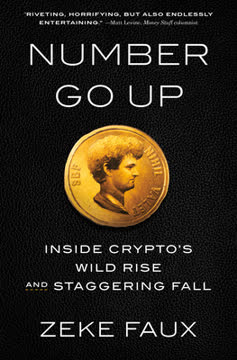
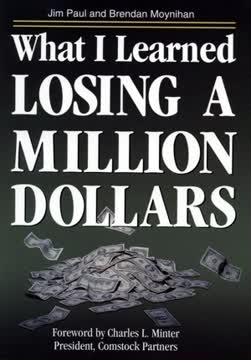
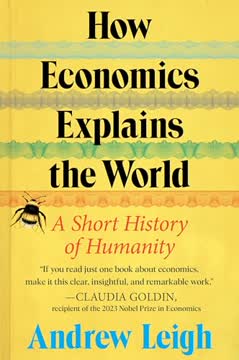

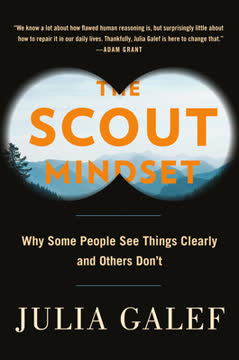
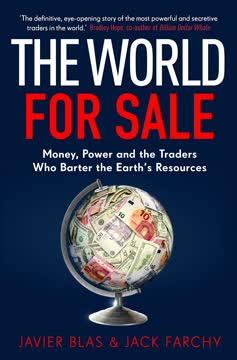
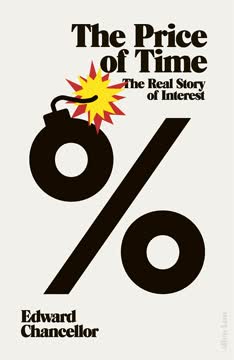
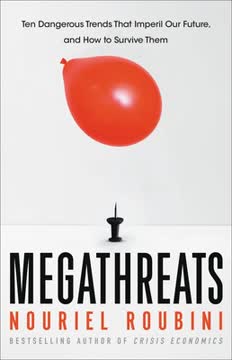
Download PDF
Download EPUB
.epub digital book format is ideal for reading ebooks on phones, tablets, and e-readers.
